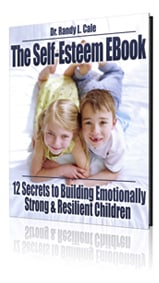Everyone is familiar with the idea of a ‘time-out.’ When used properly, giving a time-out to children will effectively help eliminate a wide range of behavioral issues. Time-outs often seem to be inadequate for certain situations, and usually, the problem is not with time-out itself, the problem is in the poor execution that many parents utilize.
But this is not an article about children needing a time-out; it’s about the benefits of mom or dad taking the time-out.
The Value Of Finding Your Calm Through a Time-Out
Very few parents come into my office and express satisfaction when they find themselves losing their temper with their kids. For many, this is an ongoing problem. I often hear the phrase, “The kids know how to push my buttons.”
The reality is that none of us have buttons. It’s just a metaphor that allows us to escape taking responsibility for our reactions. (Ouch!) We choose to get upset, raise our voice and yell or scream.
When we start to speak in metaphors, we’re really putting responsibility for our reaction onto our kids. It’s like saying:
- “If only my kids would behave better, I would behave better.”
- “If only my kids didn’t yell, I wouldn’t have to yell at them.”
- “If only they’d listen to me, I wouldn’t have to scream to get them to pay attention.”
Notice that we are always surrendering responsibility when we shift into this “button-pushing” discussion. At the same time, none of us feel good when we end up reacting emotionally in an angry or volatile manner. We escape taking responsibility for our choices when we try to shift this to our kids.
What’s The Solution? Interrupt The Reactive Patterns!
You can easily do this by choosing a ‘time-out’ for yourself. Rather than yelling, repeating yourself or getting upset, simply take a time-out! Unless there is blood flowing or imminent risk is near, you really CAN walk away.
And you will need a real-time-out that lasts a good 10 or 15 minutes. You can’t just walk away, take a breath, and return (at least…for most of us). You will not be able to think clearly if you’re hooked emotionally and you only take a few seconds. Your judgment will be off, and your decisions will likely just get in the way of future civility in the home. Instead, give yourself enough time to remove yourself from the situation, and allow your body chemistry to calm. Your thinking and your words will be clear and calm.
“But…But…But…They Aren’t Listening To Me.”
Here’s the harsh truth: Your words aren’t working anyway.
I get it…the kids aren’t listening to the way you want them to. But first things first: Look clearly at the result of all that yelling and getting upset. Over time, you just end up yelling more, getting upset more and the kids are doing less. It’s a failing system…go please give it up.
The first step to change is for you to change. You must lead by example: that you can keep your calm even when things aren’t going your way. How would they learn to keep their cool when life disappoints or frustrates them…unless you show the way?
Please trust me: you can stay clear-headed, even when chaos seems to be right in your face. Another dramatic, upset voice does not help your family get better. It only leads to more drama and more upset, with fewer and fewer results.
So try the time-out approach. Realize that the world will not fall apart when you close the door to your bedroom for few minutes, take a short walk (even if around the house a few times), or simply sit down by yourself for a few minutes. Teach your brain, through repeated time-outs, that you can actually choose calm (and the good stuff that comes with it), rather than reactive thinking and the negative, ugly stuff that comes with that. You do have the power…just test it.
In this approach, you also must realize where you have power…and where you do not have power. You do NOT have the power to control your kids. Learn more about this distinction here: Focus on What You Can Control! Read More Here: Control the controllables!















